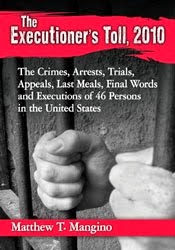Energized by their midterm victories and a focus on gunshot
victims highlighted by a growing chorus of medical professionals, House Democrats say they will push for legislation to fund research on gun injuries and deaths, reported
The Hill.
Making gun violence a public health issue is seen as
unlikely to cause divisions between liberal and centrist Democrats, some of
whom are wary about moving too far to the left ahead of their 2020 reelection
bids.
But with a divided Congress starting in January, Democratic
leaders will have to tamp down expectations for achieving gun-related
legislative goals of any kind since their bills will be landing in a GOP-led
Senate.
Most legislation around gun violence was off the table for
eight years of Republican rule in the House as GOP leaders sided with the
powerful gun lobby against any new firearm restrictions, including federal
funding for research.
Now, Democrats are united around making gun violence about
public health, with some looking toward background checks as well.
“We have an opportunity to pass background checks for every
firearm purchase,” said Swalwell, a progressive who is openly considering a
2020 presidential bid. “We have an opportunity to finally study gun violence in
America to see what we can do.”
The U.S. has seen a long string of high-profile mass
shootings at various venues and locations in recent years: an elementary school
in Newtown, Conn.; a nightclub in Orlando, Fla.; a church in Charleston, S.C.;
country music festival in Las Vegas; a high school in Parkland, Fla.; and a
synagogue in Pittsburgh.
An analysis of government data this week found that
gun-related deaths in the U.S. last year reached their highest level in almost
four decades, with
nearly
40,000 people killed.
As mass shootings have become more common, public opinion
has evolved. Many of the newly elected Democrats from conservative districts
embraced new restrictions on gun purchases while on the campaign trail without
facing the previously feared backlash on Election Day.
Rep. Conor Lamb (D-Pa.) ran on support for universal
background checks, and Rep.
Charlie Crist (D-Fla.),
a member of the moderate Blue Dog Coalition, was a co-sponsor of universal
background check legislation this year.
With measures like those failing to make their way through
Congress, Democrats are looking to start with appropriating government funds to
study gun violence.
Rep.
Frank
Pallone Jr. (D-N.J.), the likely chairman of the House Energy and
Commerce Committee next year, said appropriating funds fort he Centers for
Disease Control and Prevention (CDC) to study gun violence will be a priority
in the new Congress.
“We have tried repeatedly over the last few years” to get
authority and funding for research on gun violence, “and every time we try to
do it we were turned down by Republicans,” Pallone said.
Long-standing restrictions have effectively prevented the
CDC from conducting any kind of gun violence protection research. The so-called
Dickey amendment, inserted into a 1996 government funding bill by the late Rep.
Jay Dickey (R-Ark.), has been renewed in subsequent years.
The provision states: "None of the funds made available
in this title may be used, in whole or in part, to advocate or promote gun
control.”
Although the provision doesn’t explicitly ban research into
gun violence, public health advocates and Democrats say there’s been a chilling
effect in place for more than 20 years that’s proven difficult to overcome.
When the Dickey Amendment first found its way into law, CDC
researchers stopped working on gun-related projects. Congress moved the $2.6
million earmarked for gun violence and prevention studies into a fund to study
traumatic brain injuries.
The agency has gone without dedicated funding for firearms
research ever since.
Republicans say the CDC has always had the authority to
conduct research into gun violence and that the agency has essentially engaged
in self-censorship.
In addition to CDC funding, Pallone said the committee might
take up legislation sponsored by Rep.
Robin Kelly (D-Ill.)
that would mandate the U.S. surgeon general submit an annual report to Congress
on the effects of gun violence on public health.
“We’re going to authorize the legislation we have not been
able to move because of Republicans,” Pallone said at recent a press conference
on gun violence. “That will make sure that kind of funding is available through
the CDC.”
Rep.
Rosa
DeLauro (D-Conn.), who is expected to be chairwoman of the
Appropriations subcommittee with jurisdiction over the Department of Health and
Human Services, said she hopes gun research can be bipartisan.
“If the claim by Republicans and the agency is that they
have the authority to do it … then let’s provide them with the resources,” DeLauro
told The Hill. “My hope is you can get bipartisan support on some very very
basic issues.”
Democrats' larger plans for gun reform legislation are less
clear.
Rep.
Mark
Pocan (D-Wis.) said lawmakers are still “just laying out various bills
at this point.” On top of research funding, he said he expects to see
legislation regulating bump stocks and other types of policies that have strong
public support.
Bump stocks, which modify certain semi-automatic weapons to
fire much more rapidly, were used in the October 2017 Las Vegas shooting that
left 59 people dead and more than 500 wounded.
House Minority Leader
Nancy Pelosi (D-Calif.)
said the House will vote on gun violence legislation and has indicated
universal background checks will be part of it.
“We will pass common sense gun violence prevention
legislation soon, and it will be bipartisan,” Pelosi said at a press conference
last week.
Rep.
Mike
Thompson (D-Calif.), head of the party’s task force to prevent gun
violence, said the results of the November midterms speak to a need to act on
gun reforms.
Thompson sponsored a background check bill this year and in
2016, and he will likely take the lead on it next year.
“There’s a new majority in the House of Representatives, and
we will pass gun violence prevention legislation that will make our communities
safer, that will respect the 2nd Amendment and that every American can be proud
of,” Thompson said recently.
While gun bills are likely to pass the House, leaders will
have to compromise on their priorities with the GOP-controlled Senate.
The midterm elections added to the GOP's Senate majority,
and the incoming Republicans are all gun-rights promoters supported heavily by
the firearms lobby, posing challenges for Democrats on the research-funding
front.
Sen.
Roy
Blunt (R-Mo.), a member of the Senate Appropriations Committee, said
he doesn’t think the Senate would take up a House bill with gun research
provisions.
“I can’t imagine that that would be something we’d add
specifically to the bill,” Blunt said. “They have the authority to do gun
violence research … if they want to.”







